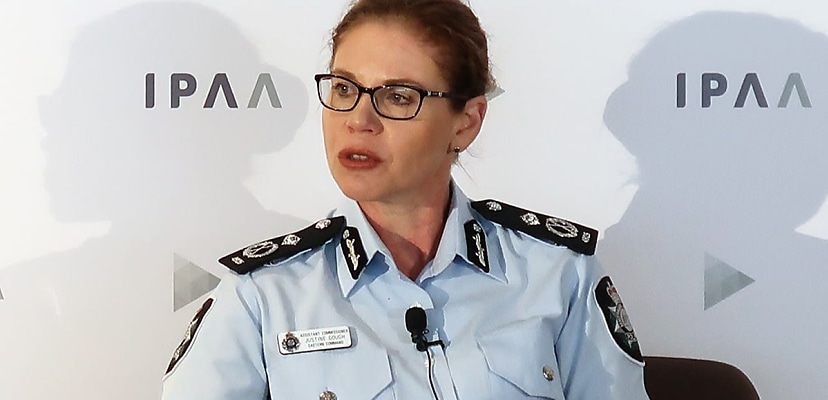Share this article on:
Powered by MOMENTUMMEDIA
Breaking news and updates daily.
The Australian Federal Police (AFP) is cracking down on cyber criminals worldwide, with an attitude that treats online theft and crime just like their physical counterparts.

At the core of the AFP’s new approach to cyber crime is education, with Assistant Commissioner Cyber Command Justine Gough suggesting that many victims of cyber crime are either “too embarrassed to come forward, or they have not realised what has happened to them is a crime”.
“To counter this, we must reinforce to the public, business and academia that cyber crime is a serious crime, whether it is ransomware, business email compromise or romance scams,” Assistant Commissioner Gough said in a statement published by The Australian.
“For some, this crime can be too abstract to understand, or too technical, so it means to better protect the community, we must engage in plain speaking, along with education and prevention.”
Assistant Commissioner Gough calls cyber crime “the break and enter of the 21st century”, reiterating that its no different from the physical theft of valuables in a brick and mortar home or business, except it can be done from anywhere in the world.
“There is reason state and territory police remind the community to lock their front doors, close their windows or keep valuables in vehicles out of sight. That same message applies to cyber crime.
“Individuals need to ensure their sensitive passwords are properly secured and businesses need to lock their systems just like they protect their bricks and mortar.
“Businesses must ensure their cyber systems do not allow the equivalent of a criminal opening an unlocked door. Once upon a time, a stolen TV may have found its way to a pawn shop; today, stolen personal data is for sale on the dark web.”
That being said, the AFP has acknowledged that with cyber crime, law enforcement has to take a different approach, shifting “towards a need-to-share posture, [and] moving away from the need-to-know comfort position often maintained by police, because cyber crime requires collaboration between law enforcement, government and the private sector”.
Alongside its stand-alone Cyber Command, the AFP is also leading the Joint Policing Cybercrime Coordination Centre (JPC3), which partners the police, financial institutions and government together.
The JPC3 is already bearing fruit, with the AFP-led Operation Dolos having prevented over $35 million from being stolen.
Assistant Commissioner Gough released this statement as a way to let the public know that cyber crime can be taken on.
“I would like to reiterate that the AFP and our domestic law enforcement partners cannot arrest our way out of this crime type, but what we can do is work with industry to ensure Australia is a hostile environment for cyber criminals. We can disrupt them by attacking key enablers supporting the criminal environment and make it too expensive for them to target Australians.”
With the similar notion of making Australia a “hostile environment for cyber criminals”, Cyber Security Minister Clare O’Neil previously announced that the government would be putting together a cyber task force that would “hack the hackers”.
Made up of roughly 100 operatives, the task force would use the same tactics as hackers to eliminate them before they hit.
Be the first to hear the latest developments in the cyber industry.